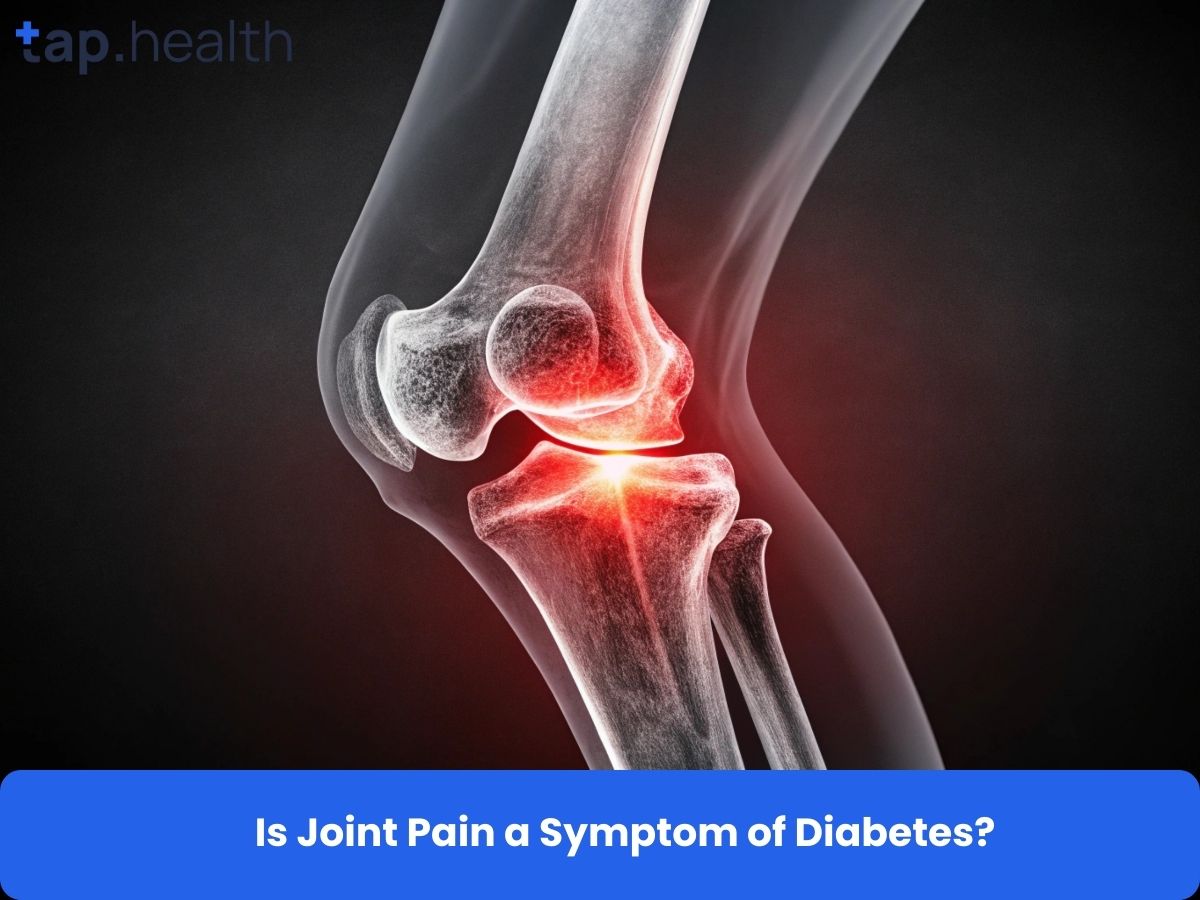Table of Contents
- Understanding PVCs and Their Link to Diabetes
- Diabetes & Heart Health: The PVC Connection
- Premature Ventricular Contractions (PVCs): A Diabetic’s Guide
- Managing PVCs in Patients with Diabetes
- Are Your PVCs Related to Your Diabetes? Risk Factors & Prevention
- Frequently Asked Questions
- References
Living with diabetes often means navigating a complex landscape of health concerns. While managing blood sugar is paramount, it’s equally important to understand potential heart complications. One such concern that can cause worry is premature ventricular contractions, or PVCs. This blog post focuses on Understanding Premature Ventricular Contractions (PVCs) in Diabetes, exploring their connection to the disease, potential risk factors, and what you can do to manage them effectively. We’ll break down the complexities of PVCs in a clear, concise way, empowering you with the knowledge you need to feel more confident about your heart health.
Understanding PVCs and Their Link to Diabetes
Diabetes significantly increases the risk of cardiovascular complications, and premature ventricular contractions (PVCs) are a key concern. Research shows that smokers with diabetes face a doubled mortality risk from cardiovascular issues, highlighting the urgent need to understand this connection. In Indian and tropical countries, where diabetes prevalence is high, this heightened risk necessitates increased awareness and proactive management.
Understanding Premature Ventricular Contractions (PVCs) in Diabetes
PVCs are extra heartbeats that originate from the ventricles, disrupting the regular rhythm. In individuals with diabetes, the risk of PVCs is amplified due to several factors, including nerve damage (neuropathy), high blood pressure, and elevated cholesterol levels – all common complications of poorly managed diabetes. These irregularities can lead to more serious arrhythmias, such as atrial fibrillation, increasing the chances of stroke and heart failure. Early detection and management are crucial. Understanding the root causes of diabetes is also important, and you might find our article on Is Diabetes Caused by a Virus or Bacteria? helpful.
Managing PVCs and Diabetes in Tropical Climates
The hot and humid climate prevalent in many Indian and tropical countries can further exacerbate cardiovascular issues. Dehydration, a common problem in these regions, can worsen existing heart conditions and increase the likelihood of PVCs. Staying well-hydrated is therefore crucial. Regular monitoring of blood glucose levels, blood pressure, and cholesterol, coupled with lifestyle modifications like adopting a heart-healthy diet and regular exercise, are essential steps in mitigating the risk of PVCs and other diabetes-related cardiovascular complications. Consult your physician regularly for personalized advice and screening to address any concerns promptly. Prioritizing cardiovascular health is paramount for individuals with diabetes in these regions. It’s also important to consider the role of obesity, as explained in our article, Understanding the Link Between Diabetes and Obesity.
Diabetes & Heart Health: The PVC Connection
Understanding the Increased Risk
Living with diabetes significantly increases your risk of heart problems. In India, this risk is amplified by the high prevalence of hypertension. Over 60% of individuals with diabetes in India also suffer from high blood pressure—a statistic highlighted by the International Diabetes Federation (IDF). This concerning overlap contributes to a heightened likelihood of developing premature ventricular contractions (PVCs). PVCs are extra heartbeats that originate from the ventricles, rather than the sinoatrial node, and can be a sign of underlying cardiac issues. For individuals in India and other tropical countries with a high prevalence of diabetes and hypertension, understanding and managing these conditions is crucial for preventing serious heart complications. To understand how diabetes impacts your circulatory system, read more about How Does Diabetes Affect Blood Flow?.
PVCs, Diabetes, and Hypertension: A Dangerous Trio
The connection between diabetes, hypertension, and PVCs is complex. High blood sugar levels damage blood vessels, including those in the heart. This damage weakens the heart muscle, making it more susceptible to irregular heartbeats like PVCs. Simultaneously, hypertension puts extra strain on the heart, further increasing the risk. In tropical climates, factors like heat and humidity can also exacerbate cardiovascular issues in individuals with diabetes.
Taking Control: Actionable Steps
Managing both your diabetes and hypertension effectively is key to reducing your risk of PVCs and other heart complications. This includes maintaining a healthy diet, exercising regularly, and adhering strictly to your prescribed medication regimen. Regular check-ups with your doctor, including electrocardiograms (ECGs) to monitor your heart rhythm, are also essential. Don’t hesitate to discuss your concerns about PVCs and heart health with your physician. Early detection and proactive management are crucial for a healthier heart and a better quality of life. For practical steps to protect your heart, check out Protect Your Heart from Diabetes: 5 Essential Steps.
Premature Ventricular Contractions (PVCs): A Diabetic’s Guide
Managing diabetes effectively is crucial for overall heart health. High blood sugar levels, consistently above 126 mg/dL, significantly increase the risk of various cardiovascular complications, including premature ventricular contractions (PVCs). Even prediabetes, with blood sugar levels between 100–125 mg/dL, warrants attention as it’s a precursor to type 2 diabetes and raises your risk. Understanding this connection is the first step towards proactive heart care.
Understanding PVCs and Their Link to Diabetes
PVCs are extra heartbeats that originate from the ventricles, causing a fluttering or skipped beat sensation. While occasional PVCs might be harmless, frequent occurrences can indicate underlying heart issues, particularly in individuals with diabetes. Poorly controlled blood sugar damages blood vessels and nerves, impacting the heart’s electrical system and increasing the likelihood of irregular heartbeats like PVCs. This risk is amplified in tropical and Indian climates where existing heart conditions might be exacerbated by heat and humidity. It’s important to note that irregular heartbeats like PVCs can sometimes be associated with other conditions such as tachycardia.
Managing Your Risk: Actionable Steps
Maintaining optimal blood sugar levels is paramount. Regular monitoring, a balanced diet, consistent exercise, and adherence to prescribed medication are vital. For individuals in India and tropical regions, incorporating locally available fruits and vegetables rich in antioxidants can further support heart health. Regular check-ups with your doctor, including ECGs to monitor heart rhythm, are also crucial. Don’t hesitate to discuss any palpitations or unusual heart sensations with your healthcare provider. Early detection and proactive management can significantly reduce the risk of serious complications. Remember that preventing diabetes in the first place is crucial, and following a pre-diabetic diet can be a significant step in that process.
Seeking Expert Advice
If you experience frequent PVCs or have concerns about your heart health, consult a cardiologist. In India and other tropical countries, access to specialized cardiac care varies; therefore, seeking advice from a reputable medical professional is crucial. Remember, proactive management of diabetes is key to maintaining a healthy heart.
Managing PVCs in Patients with Diabetes
Understanding the Link Between Diabetes and PVCs
Diabetes significantly increases the risk of developing premature ventricular contractions (PVCs). This is partly due to the impact of high blood sugar on the heart muscle. Studies show a strong correlation between poorly controlled diabetes, indicated by HbA1c levels above 9%, and a higher incidence of PVCs. Over 30% of diabetes patients experience this elevated HbA1c level, highlighting the importance of proactive management. In tropical and Indian contexts, where diabetes prevalence is high, this connection is particularly crucial.
Strategies for Managing PVCs in Diabetic Patients
Effective management involves a multi-pronged approach focusing on both blood sugar control and cardiac health. Strict glycemic control is paramount. This means diligently following prescribed medication, maintaining a healthy diet, and regular exercise. Regular monitoring of blood glucose levels is essential for early detection of spikes and troughs, preventing further strain on the heart. Additionally, consulting a cardiologist for regular check-ups and ECGs is vital to monitor PVC frequency and severity. In India and other tropical regions, where access to healthcare can be a challenge, proactive measures are even more critical. Managing other conditions associated with diabetes, such as high cholesterol, is also important. For more information on this, check out our article on How to Manage Cholesterol Levels with Diabetes?
Practical Steps for Better Management
For patients in India and similar regions, incorporating traditional practices alongside modern medicine can be beneficial. A balanced diet rich in fruits, vegetables, and whole grains can aid in blood sugar regulation. Regular, moderate exercise, like yoga or brisk walking, can improve cardiovascular health. Open communication with your doctor about your symptoms and concerns is critical for personalized management plans. Don’t hesitate to seek advice on managing stress and adopting a healthy lifestyle tailored to your specific needs and environment. Remember, proactive management can significantly improve your quality of life. As you age, managing diabetes becomes even more crucial, and understanding the unique challenges involved is key. Learn more by reading our piece on Managing Diabetes as You Age: Challenges and Solutions.
Are Your PVCs Related to Your Diabetes? Risk Factors & Prevention
Premature Ventricular Contractions (PVCs)—extra or irregular heartbeats—are quite common, especially among people living with diabetes. Understanding this connection is vital, particularly because a large portion of the diabetic population in India and other tropical regions (about 61%) falls within the 20–64 age group. Early detection and management are key to preventing complications. While not all PVCs are directly linked to diabetes, certain factors can increase the likelihood of experiencing them.
Risk Factors: Diabetes & PVCs
Diabetes greatly increases the risk of cardiovascular complications, including PVCs. Persistently high blood sugar levels can damage blood vessels and nerves, impairing normal heart rhythm and function. Additionally, diabetes often coexists with other conditions such as hypertension and high cholesterol—both independent risk factors for PVCs.
In Indian and tropical settings, unhealthy dietary habits, sedentary lifestyles, and high stress levels can further elevate these risks. Understanding these interconnected factors helps in creating an effective prevention plan. It’s also important to note how diabetes can influence other aspects of your health, such as your platelet count, which plays a crucial role in blood circulation and clotting.
Prevention Strategies: Protecting Your Heart
The most effective way to lower your risk of PVCs is by managing diabetes properly. Maintaining healthy blood sugar levels through a balanced diet, regular physical activity, and medications as prescribed is essential.
A heart-healthy approach includes:
-
Eating foods low in saturated and trans fats
-
Incorporating fiber-rich fruits, vegetables, and whole grains
-
Staying physically active according to your doctor’s advice
-
Avoiding smoking and limiting alcohol intake
Regular visits to your cardiologist and general physician allow for early detection and management of potential heart issues. In areas where healthcare access is limited, adopting preventive lifestyle changes becomes even more critical.
By prioritizing heart health and diabetes management, you can significantly lower your risk of developing PVCs and related complications.
Real-Life Scenario
Consider a 55-year-old diabetic patient who occasionally feels a “flutter” or “thump” in their chest. After monitoring, their doctor identifies these sensations as PVCs. The irregular heartbeats often occur after stress, caffeine, or when blood sugar levels drop suddenly. With proper glucose control, hydration, and reduced caffeine intake, the frequency of PVCs decreases significantly.
Expert Contribution
Cardiologists and endocrinologists emphasize that poor glycemic control increases oxidative stress and inflammation, which can disrupt heart rhythm.
According to research published in The Journal of Diabetes and Cardiology, diabetic patients with uncontrolled blood sugar are twice as likely to experience PVCs.
Experts recommend:
-
Regular ECG monitoring for early detection
-
Maintaining stable blood sugar levels
-
Managing stress and avoiding stimulants such as caffeine or nicotine
Recommendations Grounded in Proven Research and Facts
-
Monitor heart health regularly — Get periodic ECGs or Holter monitoring, especially if you experience palpitations.
-
Maintain stable blood sugar levels — Avoid rapid fluctuations that can affect heart rhythm.
-
Eat a heart-friendly diet — Focus on potassium- and magnesium-rich foods (like bananas, leafy greens, and nuts) to support electrical balance in the heart.
-
Exercise moderately — Light aerobic activity helps improve circulation and overall cardiovascular health.
-
Consult your doctor — If PVCs are frequent or cause dizziness, shortness of breath, or chest pain.
Frequently Asked Questions
Q1. What is the connection between diabetes and premature ventricular contractions (PVCs)?
Diabetes significantly raises the risk of PVCs, which are irregular heartbeats originating in the heart’s ventricles. This increased risk is linked to diabetes-related factors like nerve damage (neuropathy), high blood pressure, and high cholesterol.
Q2. How can I reduce my risk of PVCs if I have diabetes?
Effective management is key. This includes maintaining good blood sugar control through diet, exercise, and medication; regularly monitoring your blood glucose, blood pressure, and cholesterol; and having regular check-ups with your doctor, including ECGs. A heart-healthy lifestyle with a balanced diet and regular exercise is also vital.
Q3. Are there specific environmental factors that worsen the risk?
Yes, hot and humid climates can increase the risk due to dehydration, which can negatively impact heart health. This is particularly important for those in tropical countries with high rates of diabetes and hypertension.
Q4. What are the potential consequences of ignoring PVCs related to diabetes?
Ignoring PVCs can lead to serious arrhythmias (irregular heartbeats) and other cardiovascular complications. Early detection and management are crucial to prevent these serious issues.
Q5. How can I get started with better managing my risk?
Begin by scheduling a checkup with your doctor to discuss your risk factors and create a personalized management plan. This plan will likely include regular monitoring of your blood sugar, blood pressure, and cholesterol, as well as lifestyle changes like diet and exercise modifications.
References
- A Practical Guide to Integrated Type 2 Diabetes Care: https://www.hse.ie/eng/services/list/2/primarycare/east-coast-diabetes-service/management-of-type-2-diabetes/diabetes-and-pregnancy/icgp-guide-to-integrated-type-2.pdf
- Exploring Long-Term Prediction of Type 2 Diabetes Microvascular Complications: https://arxiv.org/pdf/2412.01331



